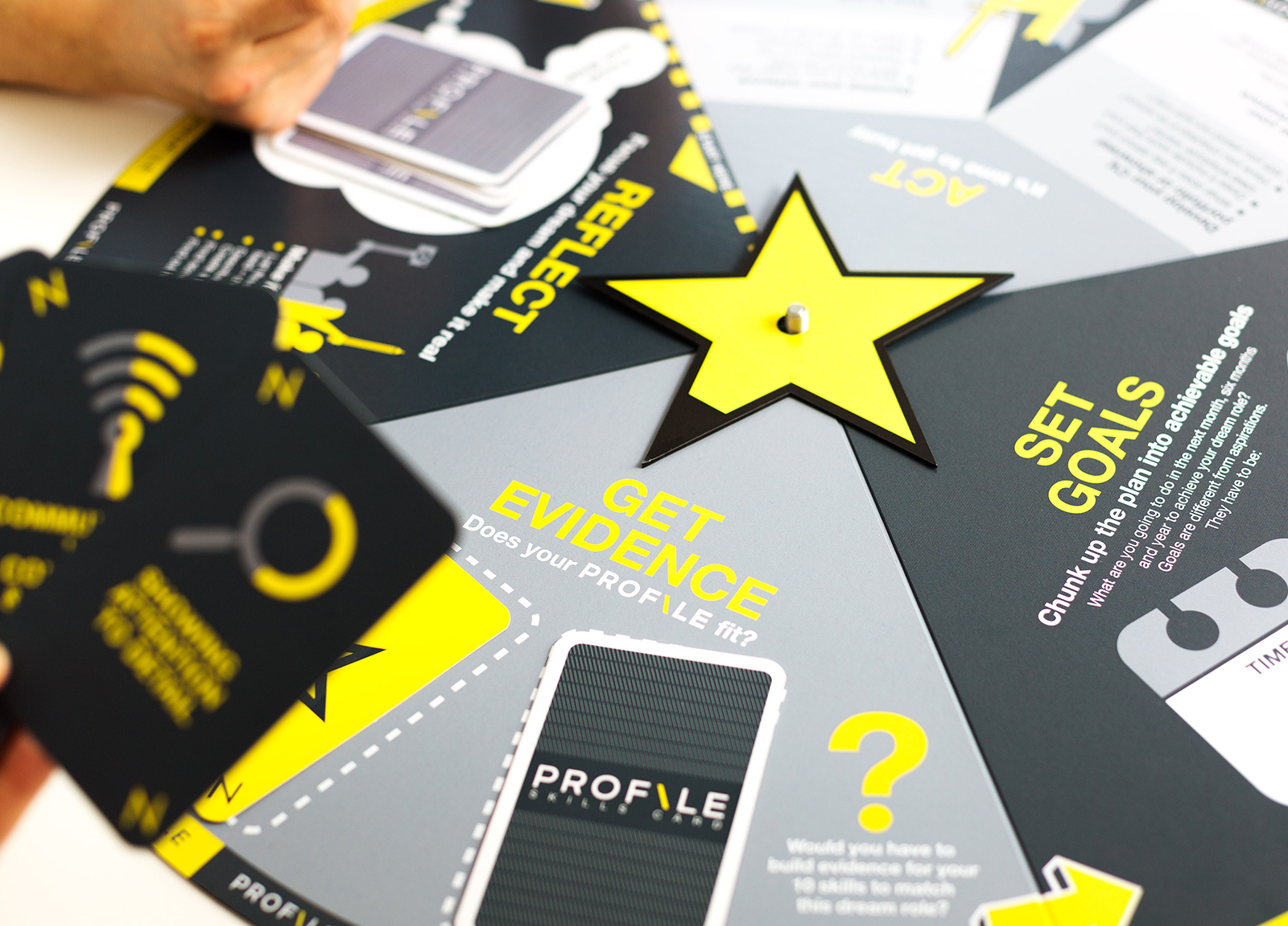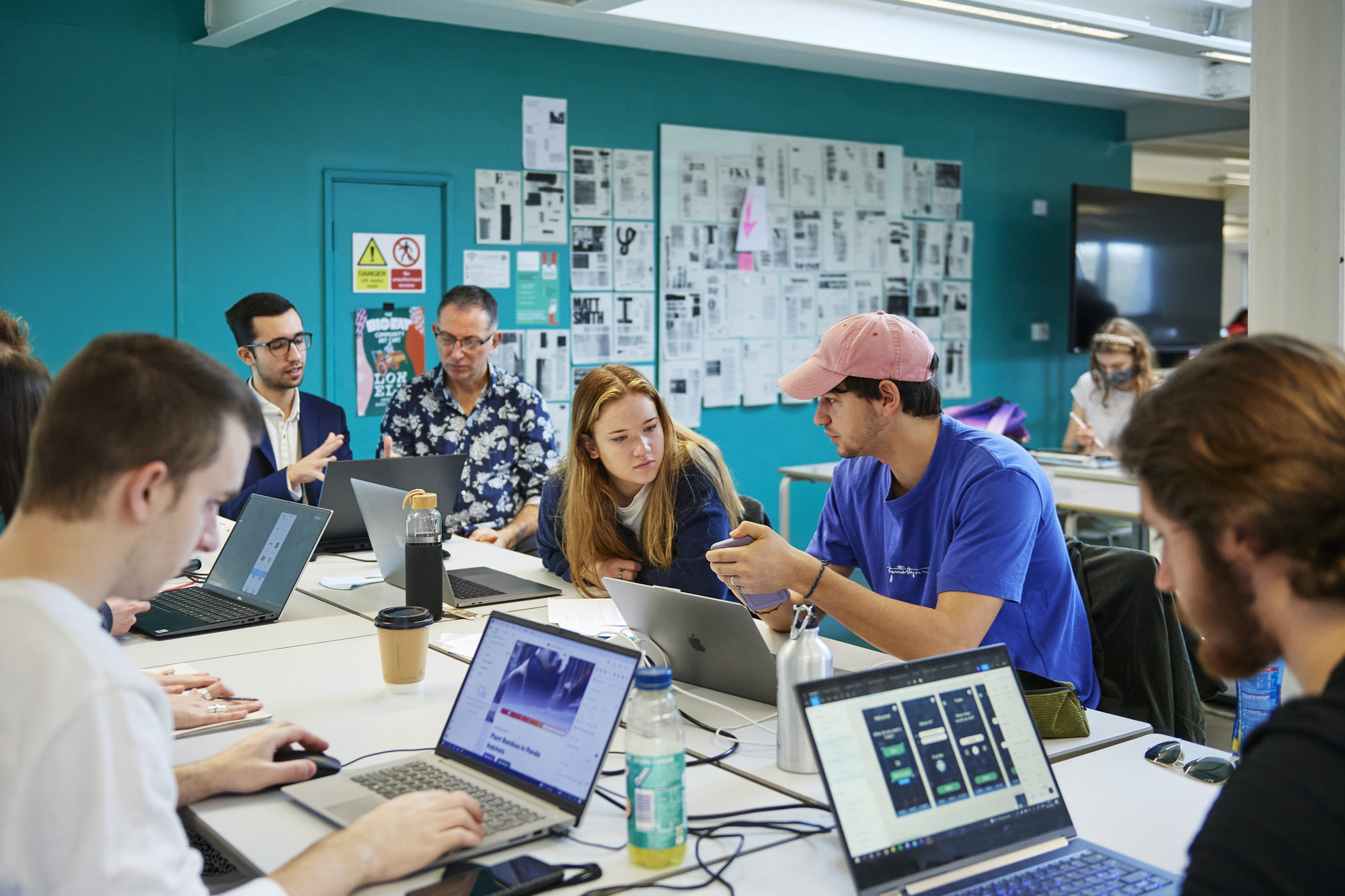
User Experience Design MA
Master user-centred design principles to develop and design socially and environmentally responsible, innovative products and solutions.
-
Course Duration
Full-time 1 year
-
Annual Fees
- Home (full-time) £11,000
- Overseas (full-time) £24,000
-
Course Start
September 2026
- How to apply Request a prospectus
User experience profoundly and fundamentally impacts how we relate to technologies, interfaces and environments. Our MA in User Experience Design empowers you to create accessible and streamlined interactions with technology.
This dynamic course emphasises applied industry approaches to user research and product development, enabling you to tackle complex challenges through experimental methods. With a strong foundation in design thinking, you will refine your skills in creating inclusive digital touch points for diverse platforms. You will engage in user research, prototyping, and testing through project-based learning to develop functional and aesthetically refined outcomes. Course projects will centre around user research, challenging you to develop tangible results for various digital platforms and interfaces.
By the end of the course, you will have a professional portfolio that reflects your unique interests, equipping you with the practical skills to communicate your findings effectively and prepare for a successful career in the UX industry.
Why study with us
-
Advanced design skills
Develop your skills and master the principles of user-centred design, accessibility, and usability to create impactful digital experiences.
-
Innovative problem-solving
Engage in hands-on projects that promote original thinking and refine your technical and creative methodologies.
-
Collaborative environment
Benefit from shared taught delivery with peers from related disciplines, supporting a collaborative environment that encourages knowledge sharing and interdisciplinary interaction.
-
Professional resources
Access state-of-the-art facilities, including contemporary technology and industry-standard tools, media labs, 2D & 3D studios and workshops, computer labs, high specification PCs, digital darkrooms, analogue and digital resources, licensed specialist software, a media resource centre, and the Make Space.
-
Ethical design frameworks
Develop products prioritising user privacy, inclusivity, and well-being, ensuring responsible design practices.
-
Portfolio development
By the end of the course, you will have created a professional portfolio of work that showcases your interests, prepares your skills, aligns with your career aspirations, and prepares you for industry challenges.
Course Details
This programme is a one-year course, including 30 weeks of direct teaching time and a 15-week final project. You will need to complete five units and one 60-credit major project (180 credits in total). All units on the course are compulsory and must be passed in order to complete the award. If you study part-time your modules will be split across two years. Full course details, including aims and assessment criteria, will be provided in the course specification upon validation.
Core practice and context in User Experience Design (60 credits)
This unit launches your master’s study experience at Norwich, encouraging you to explore leading practices and emerging research within and around user experience design. Engaging with core UX methodologies will enhance your critical understanding and knowledge in conceiving, prototyping, and producing human-centred experiences in interactive digital contexts. The focus will be applying UX design to industry-related challenges and developing practical and creative user experience outcomes. Research-led projects will immerse you in modern UX design techniques, enhancing your confidence in conceptual and practical problem-solving. You will adopt iterative, qualitative, and participatory practices to address complex challenges through thorough critique and analysis. Continuous experimentation and critical reflection will strengthen your methods within broader conceptual frameworks and ethical considerations.
Advanced technical skills in User Experience Design (20 credits)
This unit focuses on the advanced technical skills essential for idea generation, problem-solving, and practical development in user experience design. You will explore and experiment with various media and technical processes, enhancing your ability to design innovative digital products and solutions. The unit encourages an expanded approach to the discipline, challenging technical expectations in contemporary design practices. Content includes coding, physical computing, user experience methodologies, user flows, agile working, storytelling, systems thinking, and emerging technologies (AR/VR/AI). This research-led framework, combined with continuous experimentation, will deepen your practical expertise and working methods with fresh ideas, equipping you to broaden and influence the evolving landscape of user experience design.
Dialogue, debate, and domain knowledge in User Experience Design (10 credits)
This unit encourages your exploration of a range of leading practices and emerging research within user experience design through reflective analysis and interactive sessions. Through individual and group projects, you will develop a critical understanding of your discipline within socio-economic, political, ethical, and cultural contexts. Key themes include design history, identity and representation, human/computer interaction, visual language, aesthetics, Gestalt psychology, and wicked problems. You’ll develop a range of research approaches, using discursive interaction to inform your inquiry methods and push your creative boundaries to inspire new perspectives between digital design disciplines. A research-led approach will help you to use established and contemporary techniques to extend and explore your chosen area of expertise.
Professional technical skills in User Experience Design (20 credits)
This unit deepens your expertise in professional-level technical skills crucial for human-centred design in user experience. Using techniques from the ‘advanced technical skills’ unit, you will experiment with various media to support personal and professional growth. Through individual and group projects, you’ll refine technical processes and develop innovative solutions to enhance problem-solving abilities. Unit briefs focus on creating effective solutions for contemporary and emerging media platforms, supported by practice-based research exploring user environments. Topics include coding, prototyping, user flows, journey mapping, service blueprints, interface design, and emerging technologies like AR/VR/AI. A research-led approach enables you to employ established and contemporary techniques to advance your expertise.
Advanced critical context in User Experience Design (10 credits)
This unit is designed to enhance your knowledge of leading practices and emerging research within and around the field of user experience design. By developing effective research and reflective strategies, you will improve your critical comprehension of key methodologies and gain a broader understanding of creative communication within socio-economic, political, ethical, and cultural contexts. Building on the content covered in the ‘dialogue, debate, and domain knowledge’ unit, you will explore themes such as design history, identity and representation, human/computer interaction, visual language, Gestalt psychology, and wicked problems. Research-led projects will help you develop your overall creative persona and develop strategies for conceptual and practical problem-solving, positioning you as a critically engaged practitioner.
Major project (60 credits)
This unit marks the culmination of your master’s study, consolidating your specialist knowledge, communication skills, and sophisticated practices within user experience design. Through meticulous planning, organisation, and support from tutors and industry professionals, you will develop a research question and design a viable project to test your hypotheses, aiming for innovative outcomes that may involve multiple outputs or a deep focus on a specific aspect of your practice. Throughout this unit, you will deepen your understanding of the historical, theoretical, cultural, technical, and economic contexts surrounding your discipline. You will examine challenges related to social and environmental sustainability, identifying relevant industries, audiences, and stakeholders. Research-led practice will enhance your ability to synthesise experiments into complex creative outcomes that will support you as an ethically minded and innovative thinker in the field of user experience design.
Download course specifications
Learning and teaching
The course is delivered through a variety of engaging learning and teaching methods.
-
Lectures
-
Seminars
-
Tutorials
-
Technical labs
-
Independent and group work
Assessment
Our assessment methods will vary based on the unit you choose and provide a comprehensive measure of your learning and progress. These methods may include:
- Critically reflective essay
- Course work
- Presentations
- Learning journal
- Reflective evaluation
- Body of creative work
- Reflective research report
- Team project evaluation
- Major project
- Supporting documentation
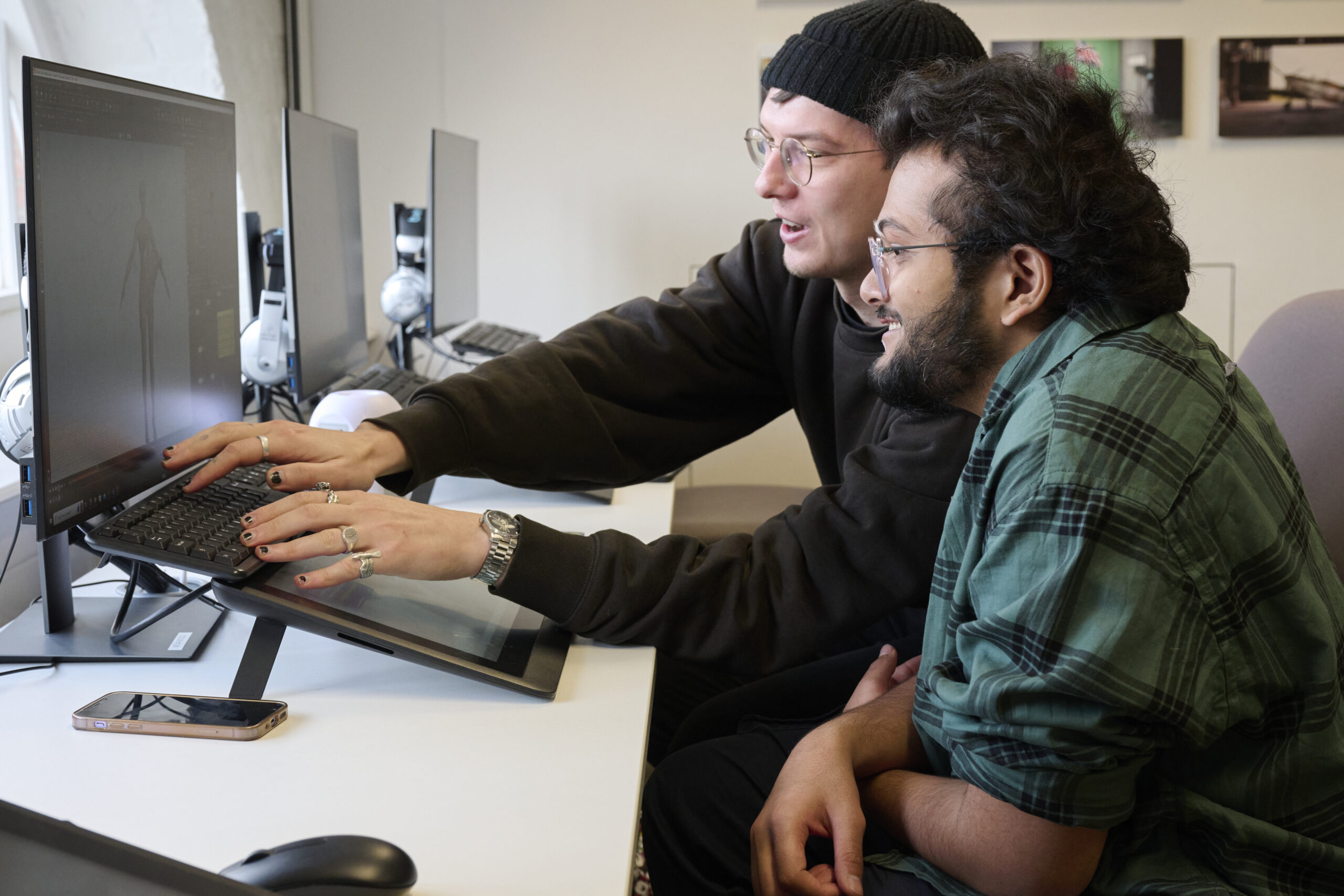
Typical career paths
The user experience (UX) sector has grown substantially over the past decade as industries have increasingly recognised the necessity and importance of optimising digital user experiences. Our MA in User Experience Design has been designed and tailored to support you in developing essential skills that are highly sought after in the industry and how to work within multi-disciplinary teams to design, develop, and evaluate digital products and services across a range of platforms and technologies. We will also prepare you for a career by equipping you with a range of transferable skills, such as complex problem-solving expertise, the ability to analyse carefully and clearly, and working as a team member.
This course prepares you for a career in a variety of disciplines related to user experience design, including:
- User researcher
- Interaction designer
- Experience designer
- Digital director
- Interface designer
The UK’s creative sector is thriving, contributing £111.7 billion annually to the economy and offering over 2 million jobs.
Department for Digital Culture Media and Sport (DCMS)
Entry Requirements
We typically require an honours degree of 2:1 or above in a science, technology, computing, maths, physics, engineering, data sciences or data analytics degree, or a professional qualification recognised as equivalent to an honours degree in a technology-related or engineering discipline.
Those with industry experience or relevant skills from non-traditional backgrounds are encouraged to apply, including individuals currently employed. If you’re unsure about your eligibility, please contact us for guidance before applying.
English language requirements (International/EU)
If English is not your first language, IELTS 6.5 (or equivalent) is required, with a minimum of 5.5 in reading, writing, listening, and speaking. we also accept other English language qualifications.
International Qualifications
We accept a wide range of qualifications from all over the world.
For information on entry requirements from your country, see our international pages.

Fees and funding
Home
Tuition fees for the 2026/27 academic year
- Full time: £11,000
The level of fee that you will be asked to pay depends on whether you’re classed as a UK
(home) or international student. Check your fee status.
Fees for subsequent years
The rules for inflation on fees in subsequent years depend on the type of fee status and level
For Home and overseas postgraduate degree students starting in 2026, fees will remain the same for each year of your course.
Funding your study
Depending on your circumstances, you may qualify for a bursary, scholarship or loan to help fund your study and enhance your learning experience. Find out more about scholarships and funding.
International
Tuition fees for the 2026/27 academic year
- Full time: £24,000
The level of fee that you will be asked to pay depends on whether you’re classed as a UK
(home) or international student. Check your fee status.
Fees for subsequent years
The rules for inflation on fees in subsequent years depend on the type of fee status and level
For home and overseas postgraduate degree students starting in 2026, fees will remain the same for each year of your course.
Funding your study
We offer a range of scholarships and bursaries for international students. To find out more and see if you’re eligible, please visit the scholarships for international students page.
Additional costs
Your course fees cover the cost of studies, and include loads of benefits, such as the use of our library, support from our expert employability team, access to workshops and free use of the IT equipment across our campuses. There are also other costs which you may need to consider.
How to apply
Home
Applications to our postgraduate courses should be made directly to Norwich University of the Arts using a Postgraduate Application Form.
Applications should be returned to admissions@norwichuni.ac.uk
Please see our Terms and Conditions and Admissions Policies for further details.
International
Postgraduate applicants can only apply directly by completing the below online application form or emailing the downloadable form to ioadmissions@norwichuni.ac.uk
International students requiring a visa should apply as soon as possible in the year they wish to start. Email our International Team for more information. Please see our Terms and Conditions and Admissions Policies for further details
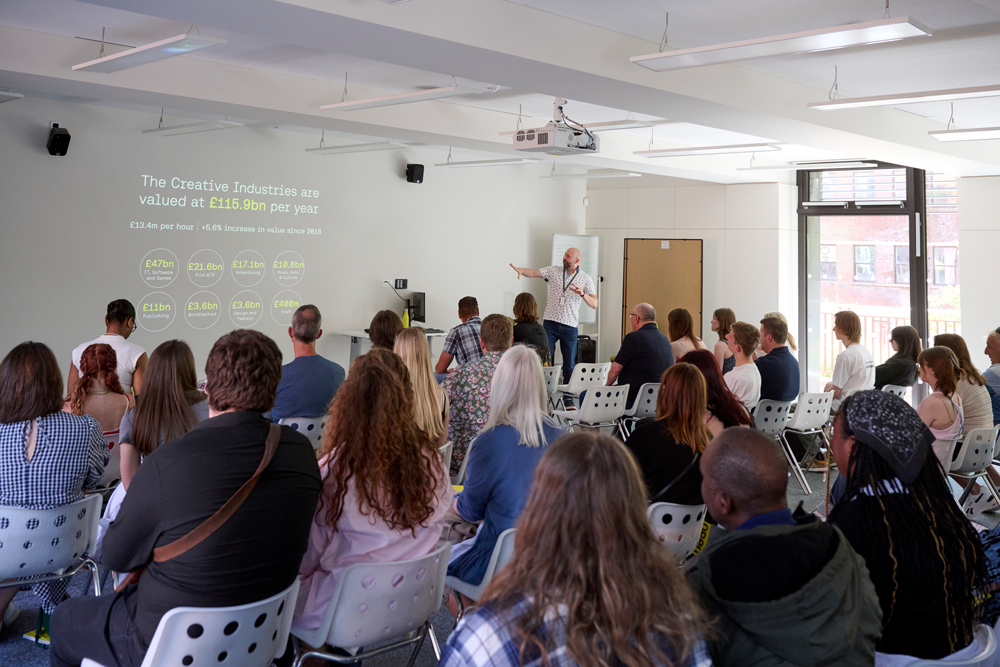
Latest news
-
 BA Business Management •
BA Business Management •Dean of Creative Education Awarded Prestigious Principal Fellowship from Advance HE
The University is delighted to announce that Hilary Carlisle, Dean of Creative Education and Professor of Design, has been awarded Principal Fellowship of the Higher Education Academy (PFHEA) by Advance HE -
 BA Business Management •
BA Business Management •In conversation with Norwich’s newest lecturers in Marketing and Business Management
We joined Norwich's newest lecturers, Stephen Balmer-Walters and Laurie McAllister, to find out more about the University's Marketing and Business Management courses. -
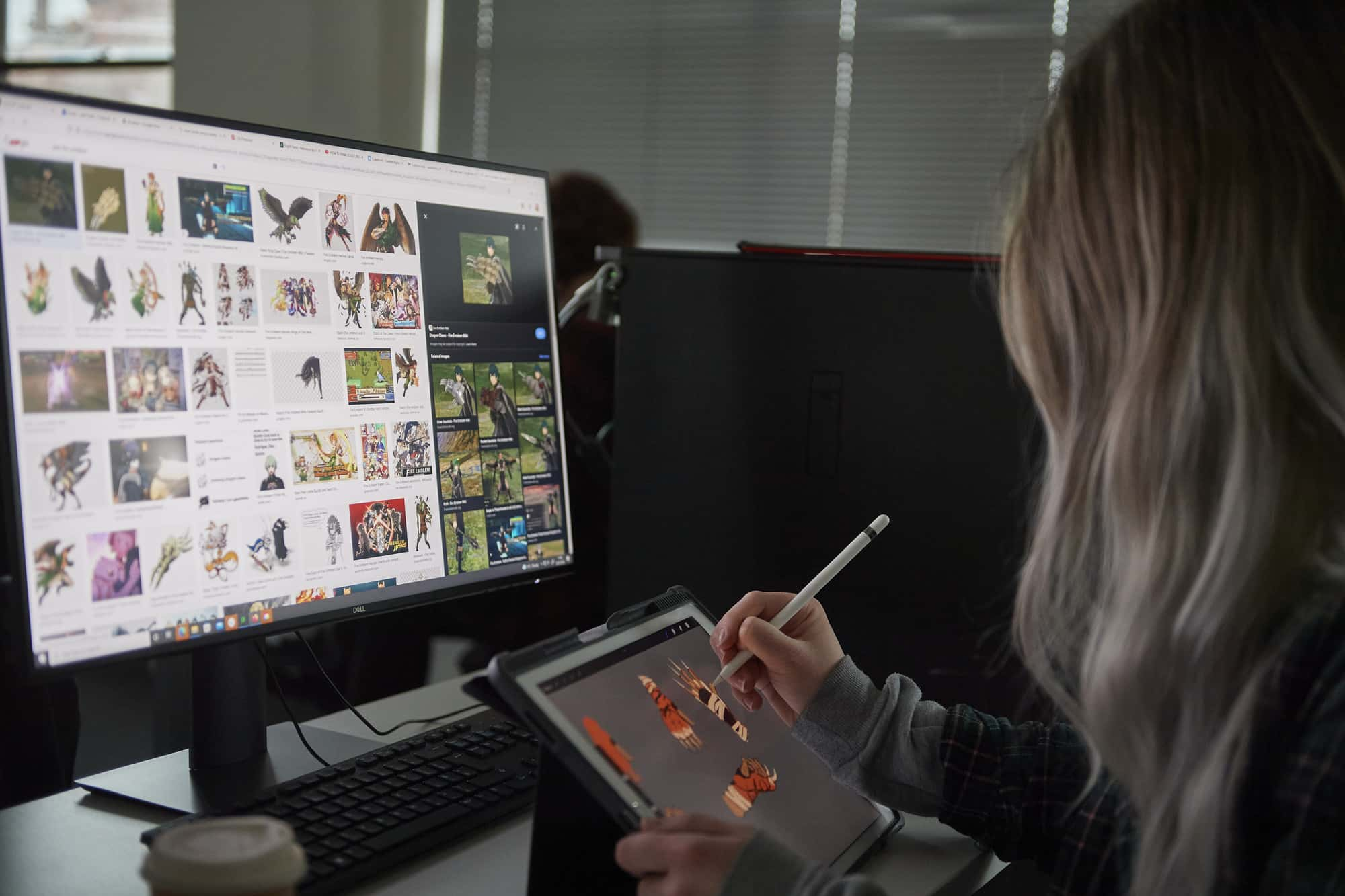 BA Games Art and Design •
BA Games Art and Design •East of England set to become UK’s next Games Cluster, says landmark report
A major new report is calling for the creation of a Games Cluster for the East of England — positioning the region as a national leader in creative technology and immersive media. -
 BA Animation •
BA Animation •Cutting edge Sony Virtual Production Studio puts Norwich on the map for the future of film and gaming
Norwich University of the Arts and Sony open new landmark facility for students, creators and the community. -
 BSc Degree •
BSc Degree •Norwich University welcomes new academics to its Psychology and Computer Science courses
Lyndsey Wallace joins the University as Senior Lecturer for BSc (Hons) Psychology, with Jawwad Chattha joining as Course Leader for BSc (Hons) Computer Science. -
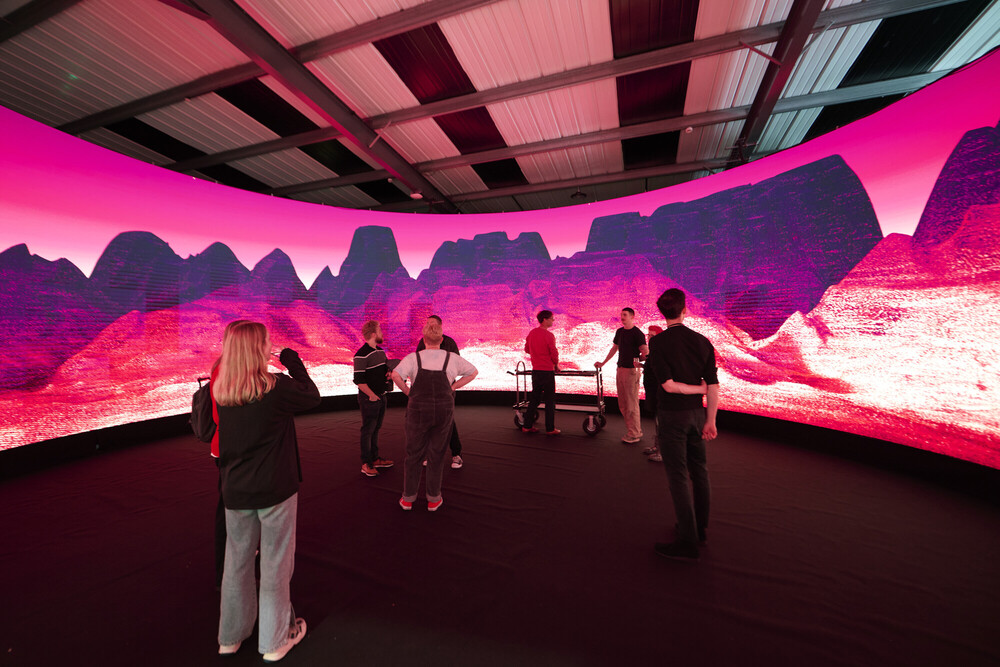 Institution •
Institution •Norwich University of the Arts Makes Historic Debut in Main Guardian University Guide
Norwich University of the Arts has marked a historic milestone, with its first-ever appearance in the Guardian University Guide’s national rankings. -
 Institution •
Institution •Norwich University of the Arts acquires Mechanism by artist Andrew Kearney
The kinetic installation, which transforms the sounds of Norwich into a daily light sequence, was commissioned in 2024 as a temporary intervention for the University’s historic Bank Plain building. -
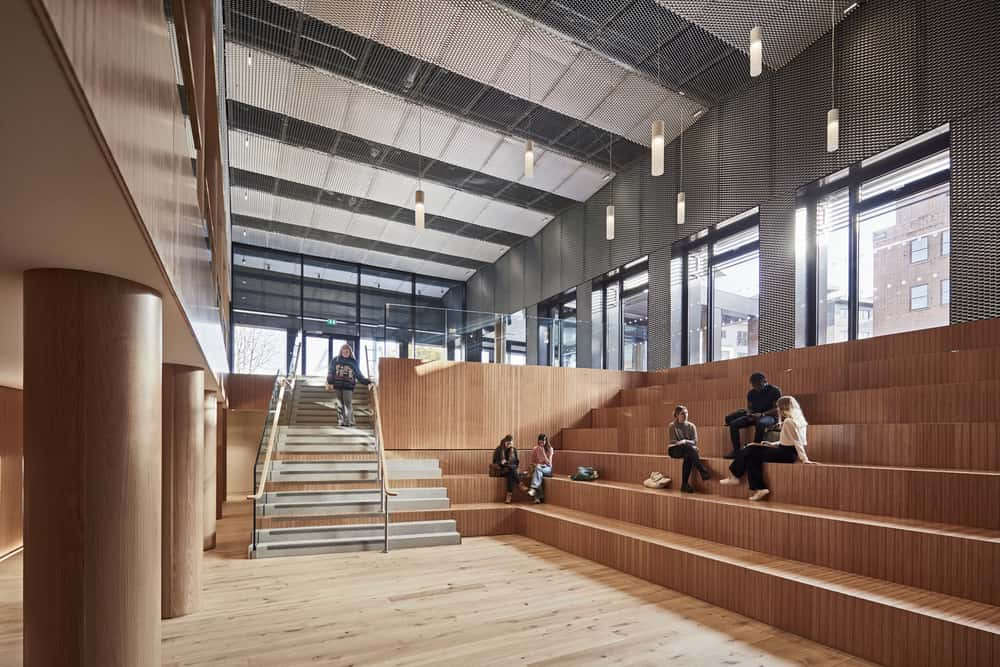 Cost of living support •
Cost of living support •Cost of living Support Package 2025-26
We are proud of the measures we introduced over the last few years and want to continue many of them in 2025/26 to ensure this support remains in place. -
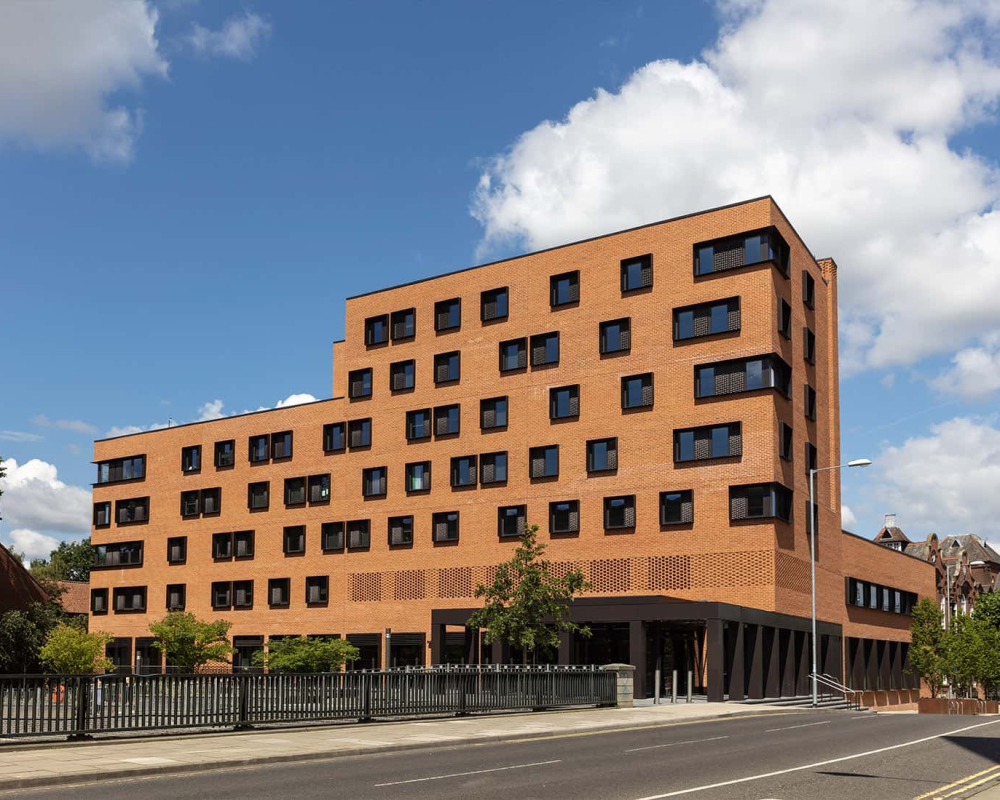 BA Degree •
BA Degree •Norwich University of the Arts moves up 25 places in The Complete University Guide
Norwich University of the Arts has been ranked among the UK's top two specialist creative arts universities — and the highest outside London — in the 2026 edition of The Complete University Guide -
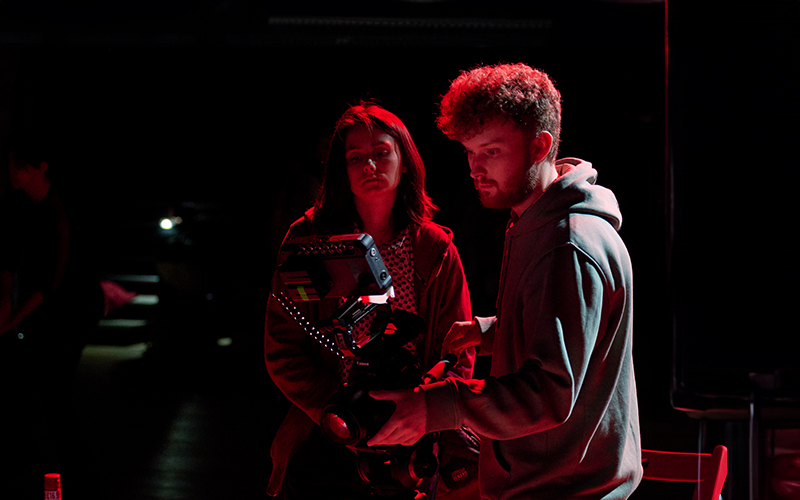 MA Communication Design •
MA Communication Design •What's the difference between undergraduate and postgraduate study?
We explore how postgraduate study could unlock your creative potential and future prospects. -
 Alumni •
Alumni •Fine Art graduate selected to exhibit at pioneering space research centre
Holly Sandiford has recently exhibited at Leicester's Space Park as part of Space: Science & Nature. -
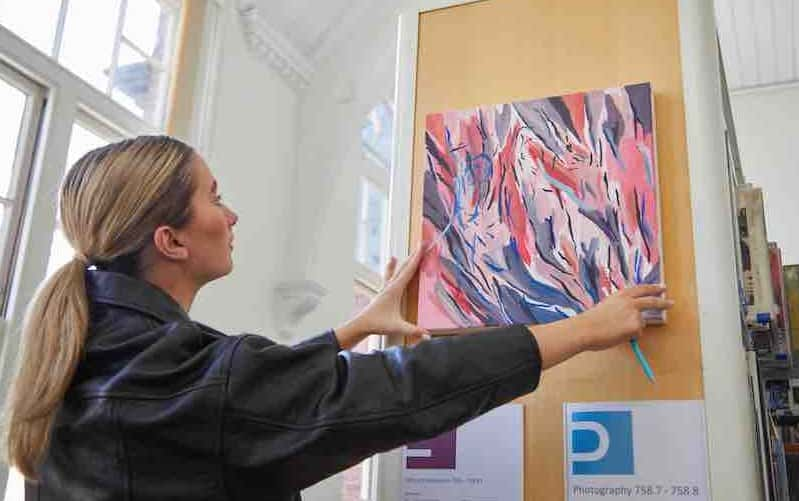 MA Degree •
MA Degree •MA Fine Art students curate exhibition takeover at NUA Library
The exhibition ‘Bibliotheca Interpellations’ showcased multi-disciplinary works by MA Fine Art. -
 MA Degree •
MA Degree •In conversation with: Michael Morgan, of Original Magazine
We talk to Michael about co-founding the multidisciplinary publication Original Magazine.
Related courses
Discover our courses and take the first step towards unleashing your potential
-
Visit the Interaction Design MA course page
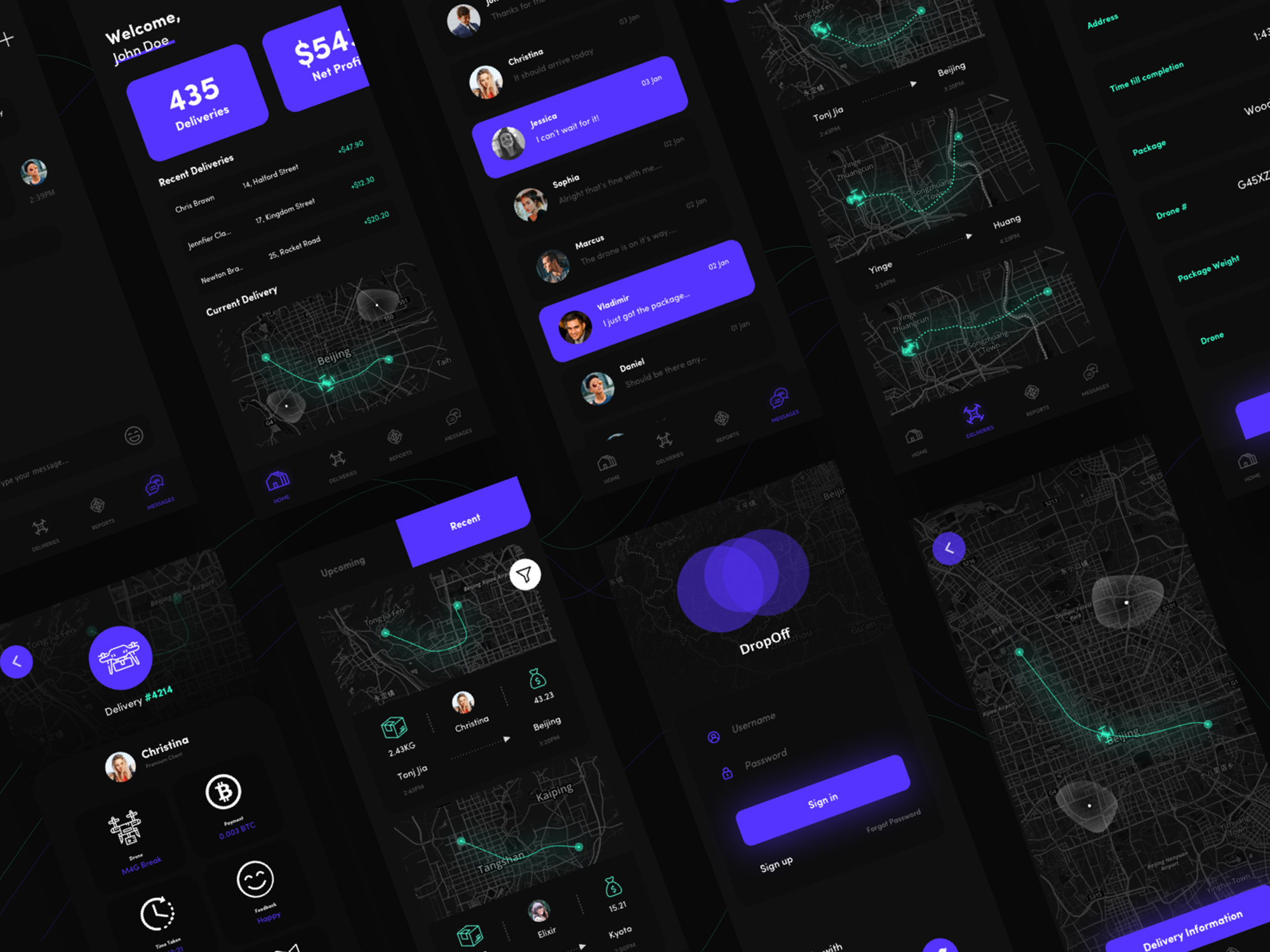
- Filter courses by study level: Postgraduate
- Filter courses by duration: Full time
- Filter courses by start month: September
- Filter courses by subject: Interaction Design
Interaction Design MA
Transform your understanding of user interaction and digital experiences through innovative practices and critical engagement.
